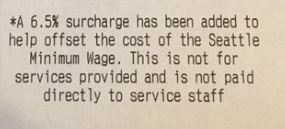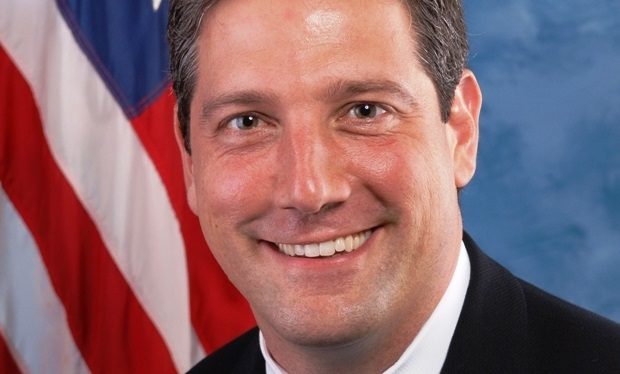The story goes like this: legislators fight to get a living wage for people who work at lower-paying jobs. It works — the state passes a law that forces employers to pay more. Employers don’t like it — not because they don’t like their employees, but because business is tough and margins are small in many cases. Business owners don’t want to raise their prices and seem like greedy jerks, so they add a surcharge to the bill — basically passing the blame (but keeping the buck) onto the legislators. The MW surcharge (minimum wage surcharge) basically means: “this bill is higher because we are being forced to pay workers more, not because we just want to gouge you.” A well-intentioned explanation that might be, but some people hate when you pass the blame. Suck it up and deal was the reaction from many who were angry more about seeing the MW surcharge than about paying it. (Those costs are going to get passed on one way or another.)

Such surcharges aren’t new. In Washington State, where they started appearing a few years ago, you’ll see MW charges not just at restaurants but at parking facilities and elsewhere. Forbes covered early use of the MW surcharges in 2014. A similar charge was implemented by some business (Buffalo Wild Wings comes to mind) when the Affordable Care Act went into effect, with a line on bills delineating a ACA surcharge to help offset healthcare expenses ostensibly caused by the ACA. Businesses don’t want to be the bad guy and raise prices — they want customers to know they’re being forced to do it. But the effect is that at the end of your meal you get a bill that looks like it was co-produced by FOX News. And that really makes some people angry. The Wall Street Journal reports that W Hotels dropped its MW surcharge — or at least stopped using a line item to shout it out — in February after bad customer feedback.
